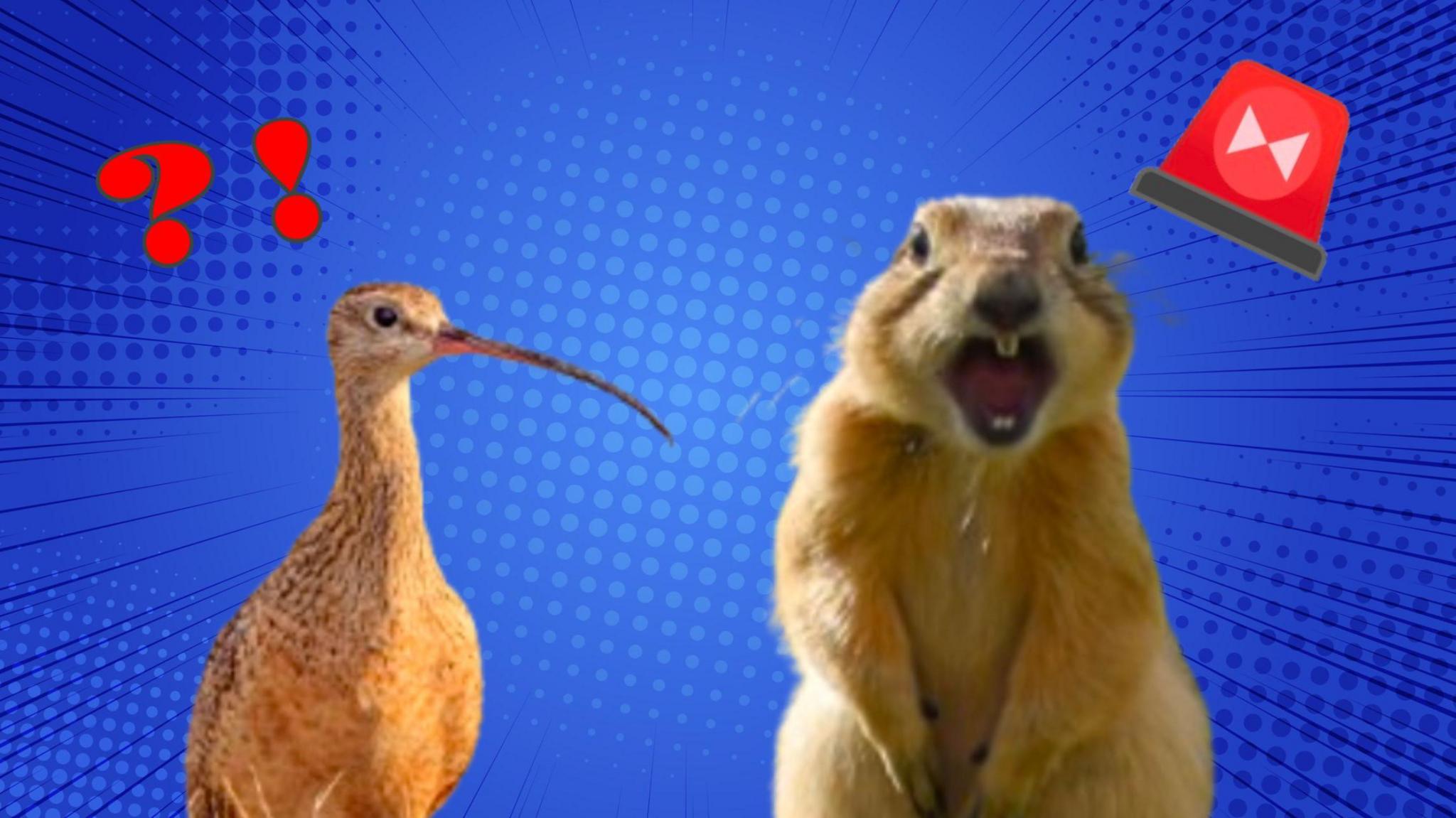Three chicks hatch from one of the world's rarest bird species
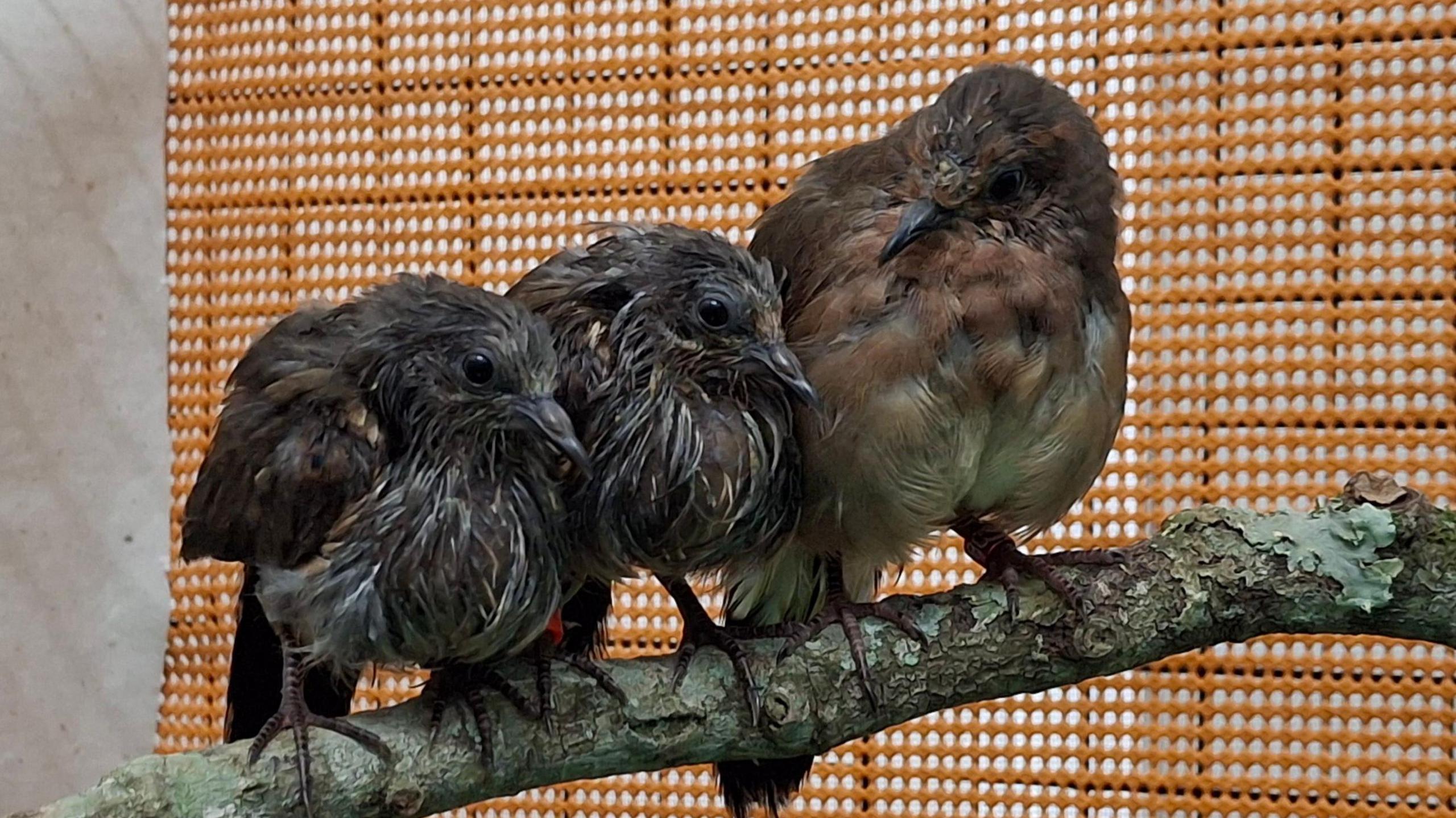
- Published
Conservationists say there is new hope for one of the world's rarest bird species, after three chicks hatched as part of a breeding project.
There are thought to be just 11 adult blue-eyed ground doves in the wild, so experts from the UK, Brazil and the US have teamed up to try and save the species from extinction.
Paloma Bosso, is the technical director of Parque das Aves, the bird sanctuary in Brazil where the new chicks hatched.
Paloma said: "Seeing these chicks is exciting. Each hatching represents a real chance to reverse the fate of this species. It is a joy and also a great responsibility."
Fly-on over to more stories like this
Big Garden Birdwatch: Why are people worried about starlings?
- Published11 April
Study finds birds-of-paradise emit light through their feathers
- Published16 February
Do birds have travel buddies?
- Published10 September 2024
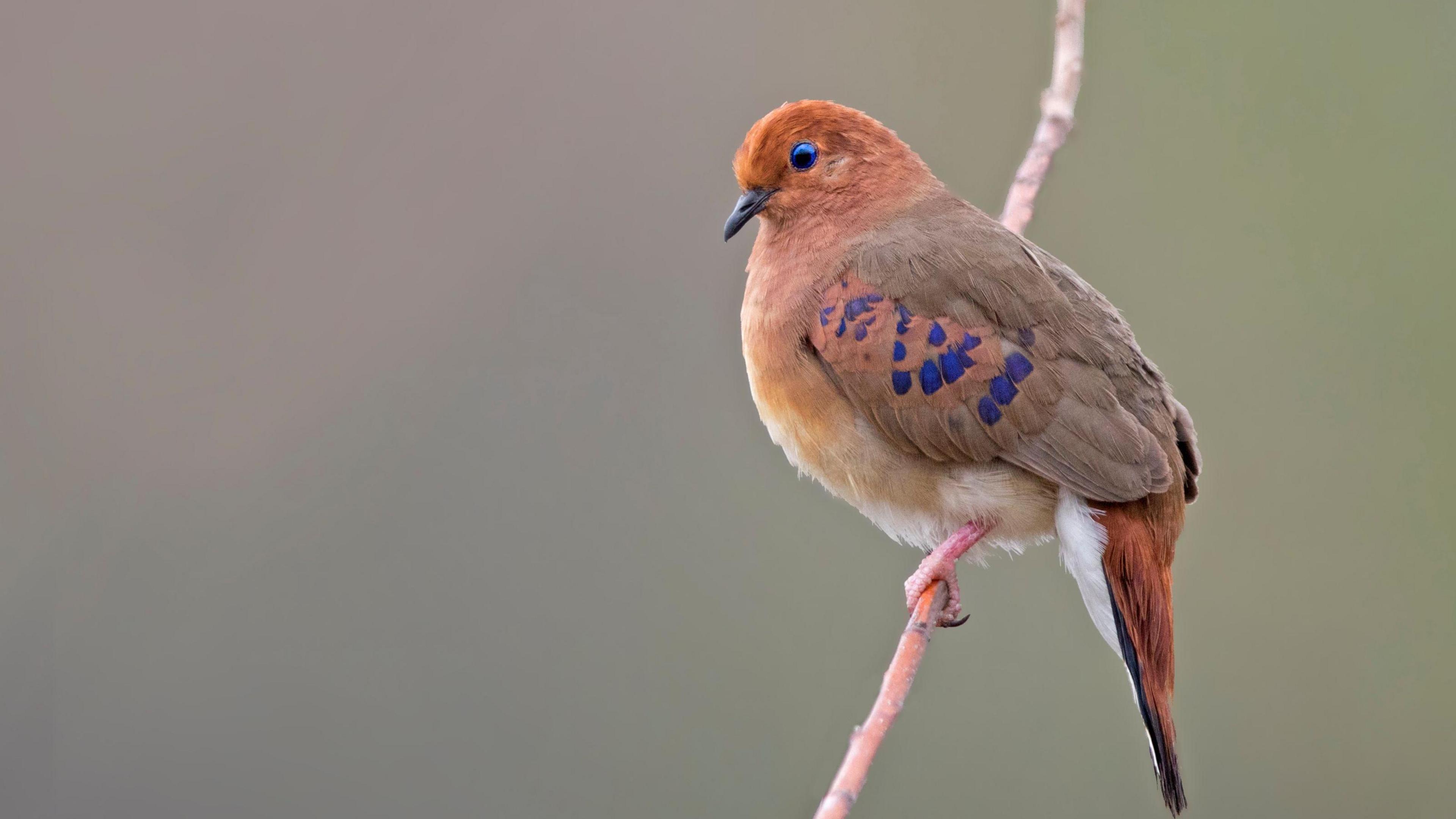
There are thought to be just 11 adult blue-eyed ground doves in the wild
Experts say the species, which is only found in Brazil, is quite a mysterious one.
For more than 70 years there were no confirmed sightings, that is until 2015 when it was rediscovered.
According to the IUCN Red List the species is critically endangered, its numbers are said to have declined due to habitat loss driven by farming and timber plantations.
To try and help save the species, a team of Brazilian and international bird conservationists - including some from Chester Zoo in the UK - started to incubate a number of eggs that were laid in the wild to create a population in human care.
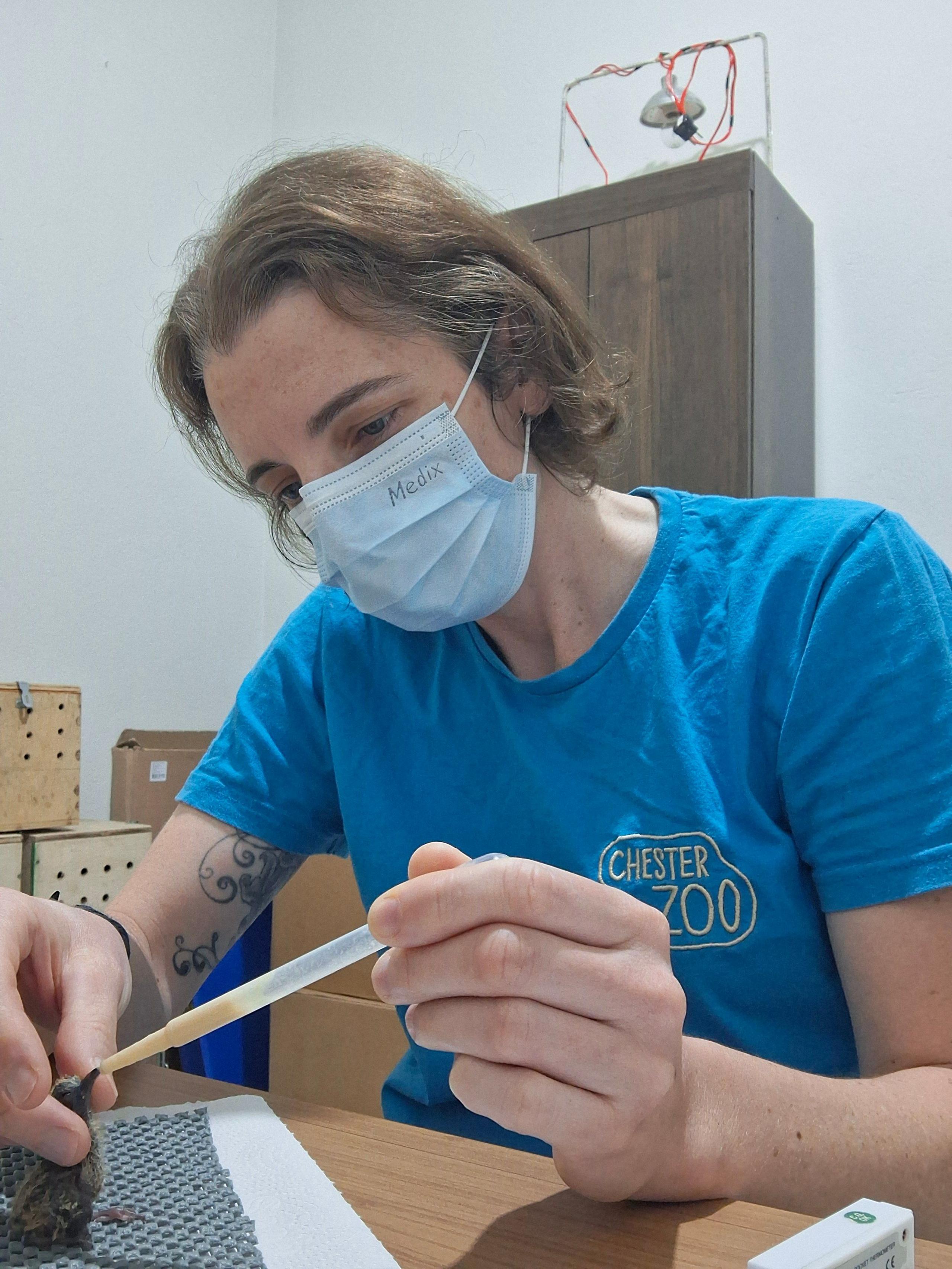
Conservationists say the arrival of the three chicks has boosted the survival odds of the species.
They are currently being hand-reared by a team of experts at the sanctuary in Brazil.
Andrew Owen, who is the head of birds at Chester Zoo, travelled to Brazil to help with the project.
He says "the long term aim is to have a viable insurance population" that can help to reinforce numbers in the wild.
Work is also taking place to maintain habitats in the Cerrado, which is an area of tropical savanna in Brazil, so that the birds in human care can eventually be released and boost the wild population.
- Published30 May
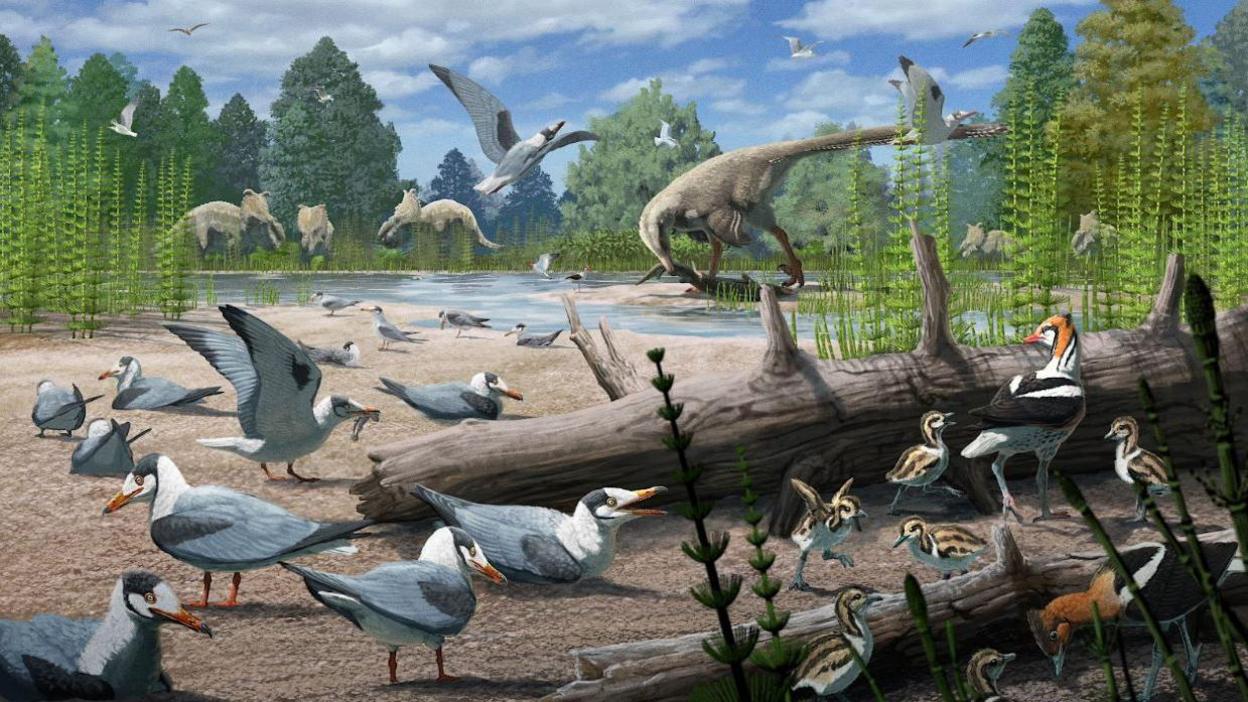
- Published8 May 2024
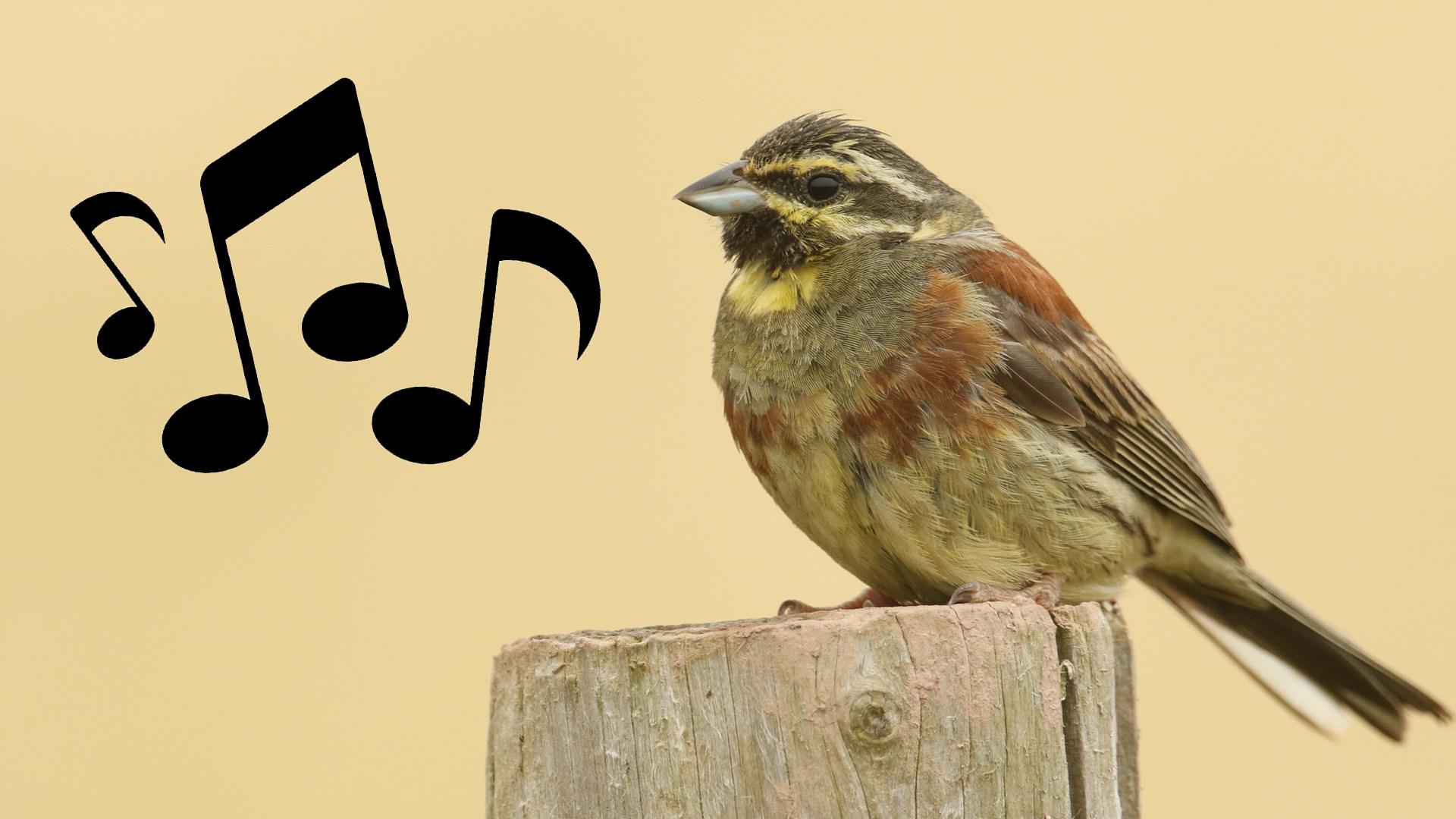
- Published16 June
